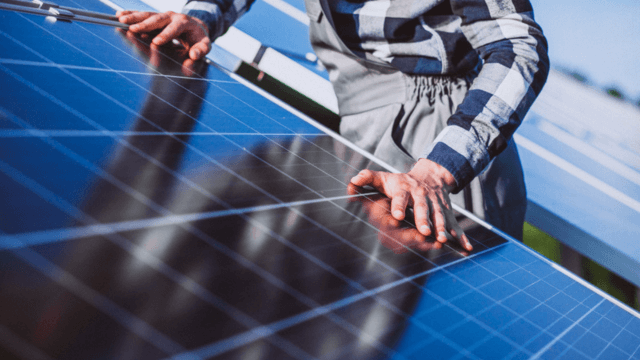Strategies for Maximising Solar Panel Output in Cold Weather

Most people tend to fear the worst when winter strikes. Do solar panels work in winter? How much power reduction should be expected? These are all questions that you can’t be blamed for asking. However, you might be surprised to find out just how well solar panels perform in the cold weather.
Solar Panel Output Vs Cold Weather: It’s Not the End of the World
Firstly, what you need to know is that solar panels still perform brilliantly during the cold season. As a matter of speaking, solar panels function better at generating electricity when the seasons change. Why? That’s based on photovoltaic cells working better under lower temperatures.
In essence, while you may think that cold weather will reduce energy output, what it doesn’t do is hinder the performance of the individual modules. In addition to that, solar panels will function better during the cold climate because of less pollution and cloud presence.
However, what will be affected is the output. In other words, electricity produced will be reduced and that’s to be expected considering that the panels need to harness the sunlight to generate power. Now, here’s when you need to think deeper and come up with ways to maximise energy production.
Maximising the Energy Produced for Cold and Rainy Days
Since you know that your panels will function better during the cold season, what you need to focus on is how to sustain energy production. In other words, how do you keep the cycle going when there’s little to no sun?
When winter strikes, you should expect a decrease in solar energy output between 20-50%. That’s a lot of power, considering the amount you regularly use. But when you consider factors like the amount of snow, location, and other factors, it’s easy to see why.
So what do you do? Here’s a list of helpful tips:
- Keep the Panels Clean and Snow-free: Heavy snow and dirt can block the little sunlight you see during winter from getting to your panels. Therefore, be sure to clean your panels every day and remove the snow that builds up on them. In the case of a snowstorm, be sure to remove the snow immediately afterward.
- Get a Solar Battery: The same way you store food for a camp trip is the same way you need to store solar energy for the days of snowflakes. Thanks to solar batteries, storing solar energy is a feasible and easy concept. Having a solar battery will allow you to store solar power generated from the sun to use on a later, colder day.
- Save Energy: Little acts like turning down the thermostat, sealing air leaks, insulating your home, and using power-saving appliances go a long way in reducing the workload on your panels.
Conclusion
Maximising solar output during cold weather requires you to combine a backup battery system with proper maintenance. Also, reducing the workload by cutting off excess power consumption is essential for keeping your solar energy efficient.





